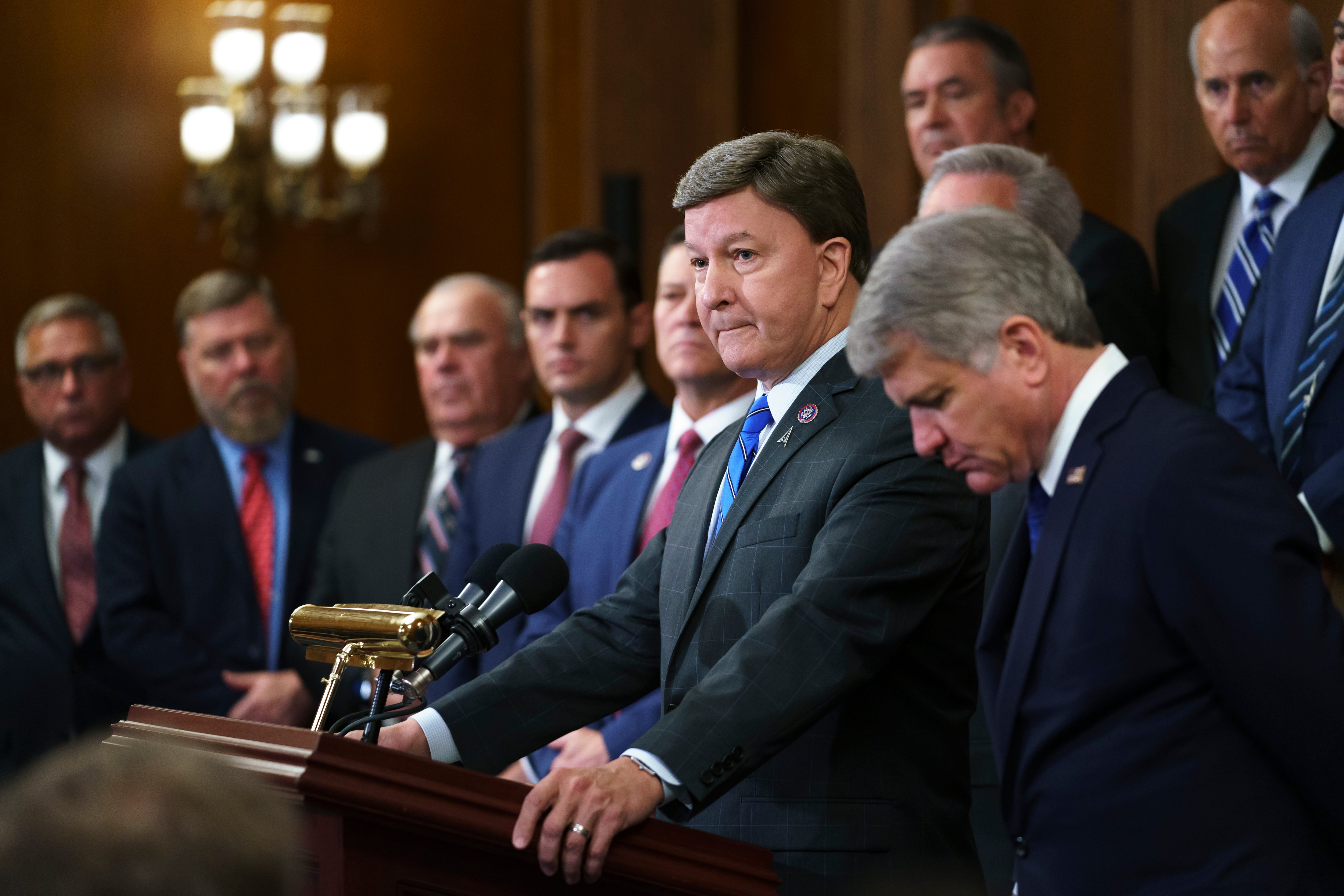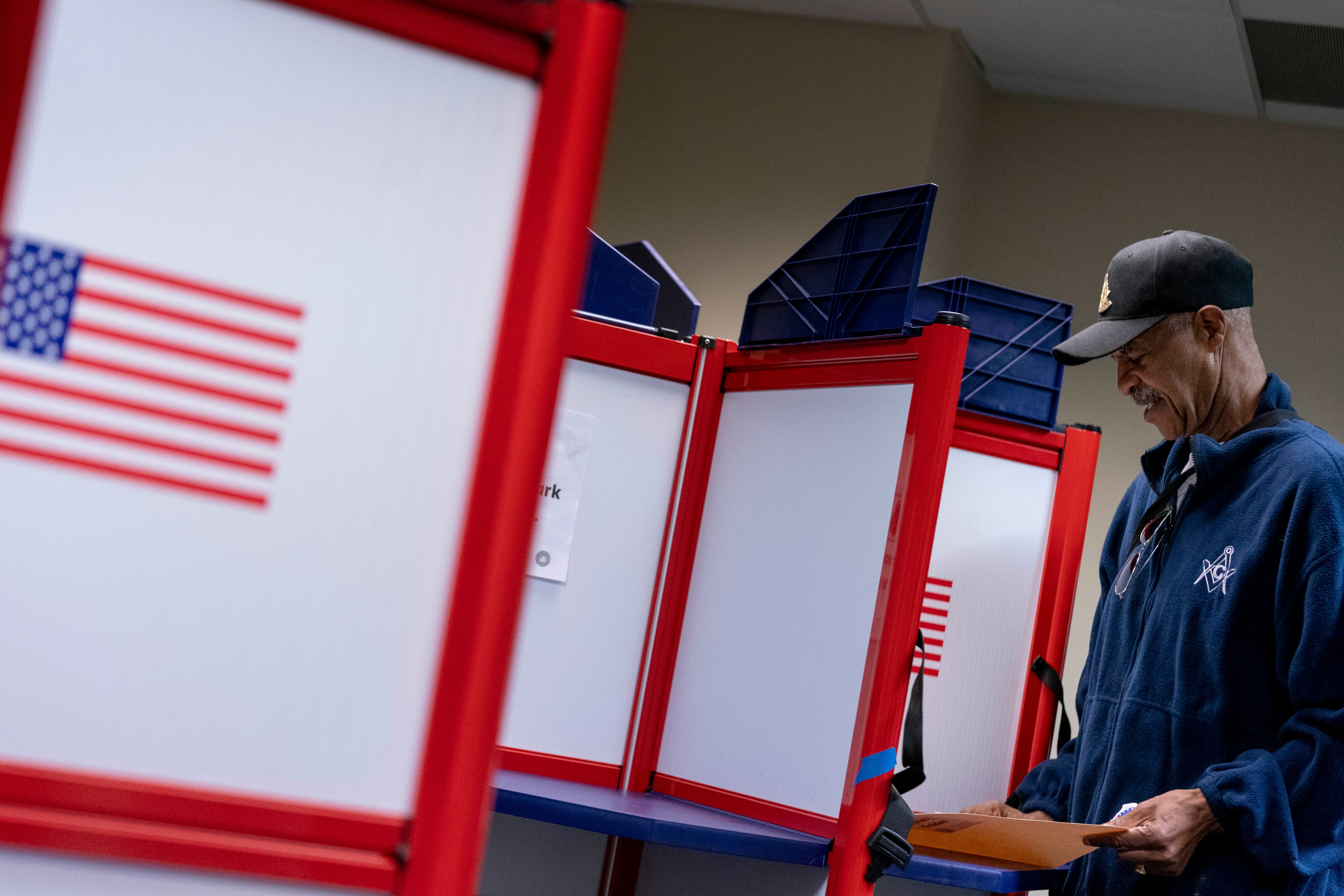Military issues and foreign affairs aren’t expected to be a major focus for voters in this year’s midterm elections, but a number of key national defense policy figures in Congress could lose their seats or step into new rules depending on the outcome of the polls.
Here are five races on election night that could have major ramifications for the Defense Department in coming years:
RELATED

Michigan 8th Congressional District: Democratic Rep. Elissa Slotkin
Slotkin is a four-year member of the House Armed Services Committee running in a key swing district. Her margins of victory in the last two elections have been small — less than 4% of the total vote in each. She’ll face Army veteran Tom Barrett in this year’s contest.
A former Middle East analyst in the CIA under Presidents George W. Bush and Barack Obama, Slotkin was among the first moderate Democrats to call for President Donald Trump’s impeachment in 2019. But she has also carved out a bipartisan reputation during her time in Congress, especially on military and veterans issues.
Last month, Slotkin gained the endorsement of outgoing GOP Wyoming Rep. Liz Cheney, a polarizing figure in both parties. Whether that backing will help Slotkin return to Congress for a third term remains to be seen.
It will also help determine just how many new faces Democrats have on the armed services committee next year.
Of the 31 party members on the panel, six have already opted to retire from Congress and six more are in difficult reelection battles, according to ratings from the Cook Political Report.
In contrast, only three GOP members opted to retire or lost primary races (that includes Cheney) and only one committee Republican is in a closely contested race.
Maine 2nd Congressional District: Democratic Rep. Jared Golden
Golden, a Marine Corps veteran, is another endangered House Armed Services Committee Democrat.
Golden is seen as a moderate on military issues, and broke with party leaders earlier this year by pushing for a larger defense budget than the White House requested during debate over the annual defense authorization bill.
Despite that, he is well respected by party leadership. Committee Chairman Adam Smith, D-Wash., visited Golden’s district in September to tour shipbuilding operations at Bath Iron Works and to highlight Golden’s defense work for constituents.
This year, Golden faces former Rep. Bruce Poliquin in the November election. The last time the two met on the campaign trail, in 2018, the race was decided by just 1.2% of the total vote.
And that victory for Golden was during a Democratic surge election. This cycle is expected to favor Republicans, which could mean higher turnout among GOP supporters.
Golden losing on election night would indicate that Democrats aren’t able to hold key swing districts, and will likely lose either the House or Senate, if not both chambers.
RELATED

California 41st Congressional District: Republican Rep. Ken Calvert
Calvert, first elected to Congress in 1992, is the ranking member for the House Appropriations Committee’s defense panel, and will be in line to lead that subcommittee if Republicans take control of the House in the midterms.
But that’s only if Calvert wins reelection. He’s in a surprisingly close race, according to recent polls, despite national surveys which show momentum for Republican candidates across the country.
Calvert currently represents California’s 42nd District but is running for election this year in the newly redrawn 41st District, which has contributed to some of the uncertainty in the polls.
He’ll face off against attorney Will Rollins, the top Democratic candidate who finished significantly behind Calvert in the district’s open primary. But Rollins would have been nearly even with the incumbent if he had also gained the third-place Democratic candidate’s votes.
If Democrats can upset Calvert in the race, it could point to minimal losses nationwide. If not, Calvert will become the key voice for his party in next year’s defense budget debates.
Arizona Senate: Democrat Mark Kelly
While most election experts predict the House will flip to Republican control next year, the fate of the Senate remains less clear. The chamber is currently divided 50-50, with Democrats controlling the agenda due to Vice President Kamala Harris’ role as a tiebreaker in all Senate votes.
The Cook Political Report has nine races listed as close contests, including five seats currently held by Democrats. Those include the race in Arizona that features Kelly, the Navy veteran and former astronaut who was elected to his seat in 2020.
Kelly is a member of the Senate Armed Services Committee and chairs the panel’s emerging threats subcommittee. He has grown into a significant voice for Democrats on defense issues in the chamber, but he’ll have to win reelection to continue in that role.
Kelly is facing Republican candidate Blake Masters in the closely contested race. Recent polls have shown a dead heat, despite indications earlier this summer that the incumbent Kelly had an edge.
If Kelly loses, the result would give Republicans a significant edge in taking the majority in the Senate in 2023. If he can hold onto the seat, however, Democrats could keep control of the chamber.
Other races to watch:
- Virginia 2nd Congressional District (Democratic Rep. Elaine Luria): The Navy vet and House Armed Services Committee member is in a key swing district and has won her last two elections by small margins.
- Nebraska 2nd Congressional District (Republican Rep. Don Bacon): Bacon is the only GOP lawmaker on the House Armed Services Committee in a toss-up race.
- Ohio 9th Congressional District (Democratic Rep. Marcy Kaptur): Kaptur sits on the House Appropriations Committee’s defense panel and finds herself in a closer-than-expected contest.
- Florida Senate (Republican Marco Rubio): Rubio, who sits on both the Senate Appropriations and Senate Foreign Relations committees, is favored in his contest, but a smaller-than-expected margin of victory in Florida could signal trouble for the GOP.
Leo covers Congress, Veterans Affairs and the White House for Military Times. He has covered Washington, D.C. since 2004, focusing on military personnel and veterans policies. His work has earned numerous honors, including a 2009 Polk award, a 2010 National Headliner Award, the IAVA Leadership in Journalism award and the VFW News Media award.





